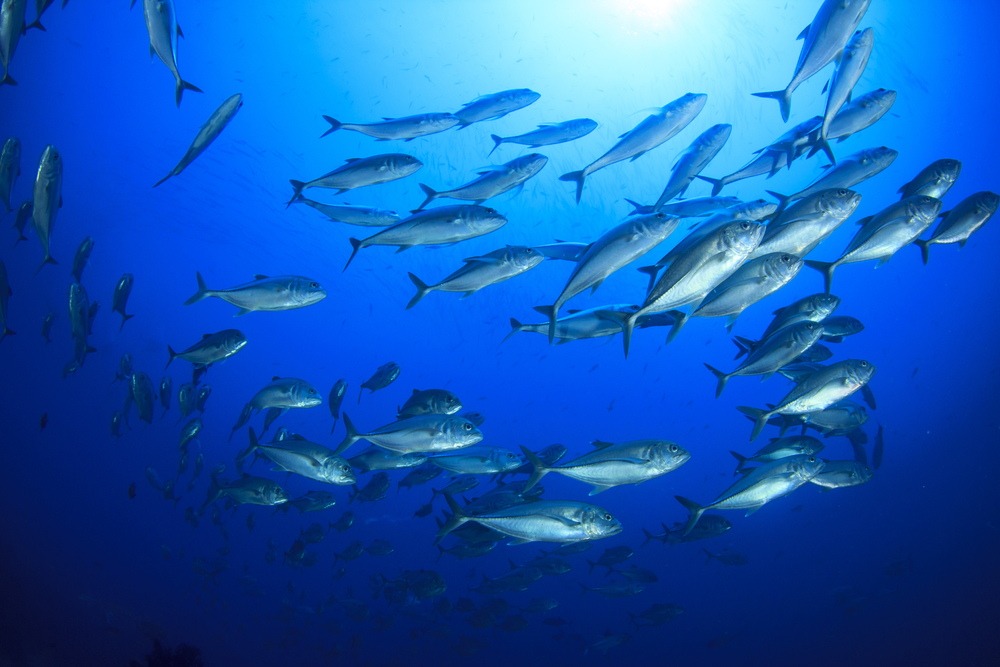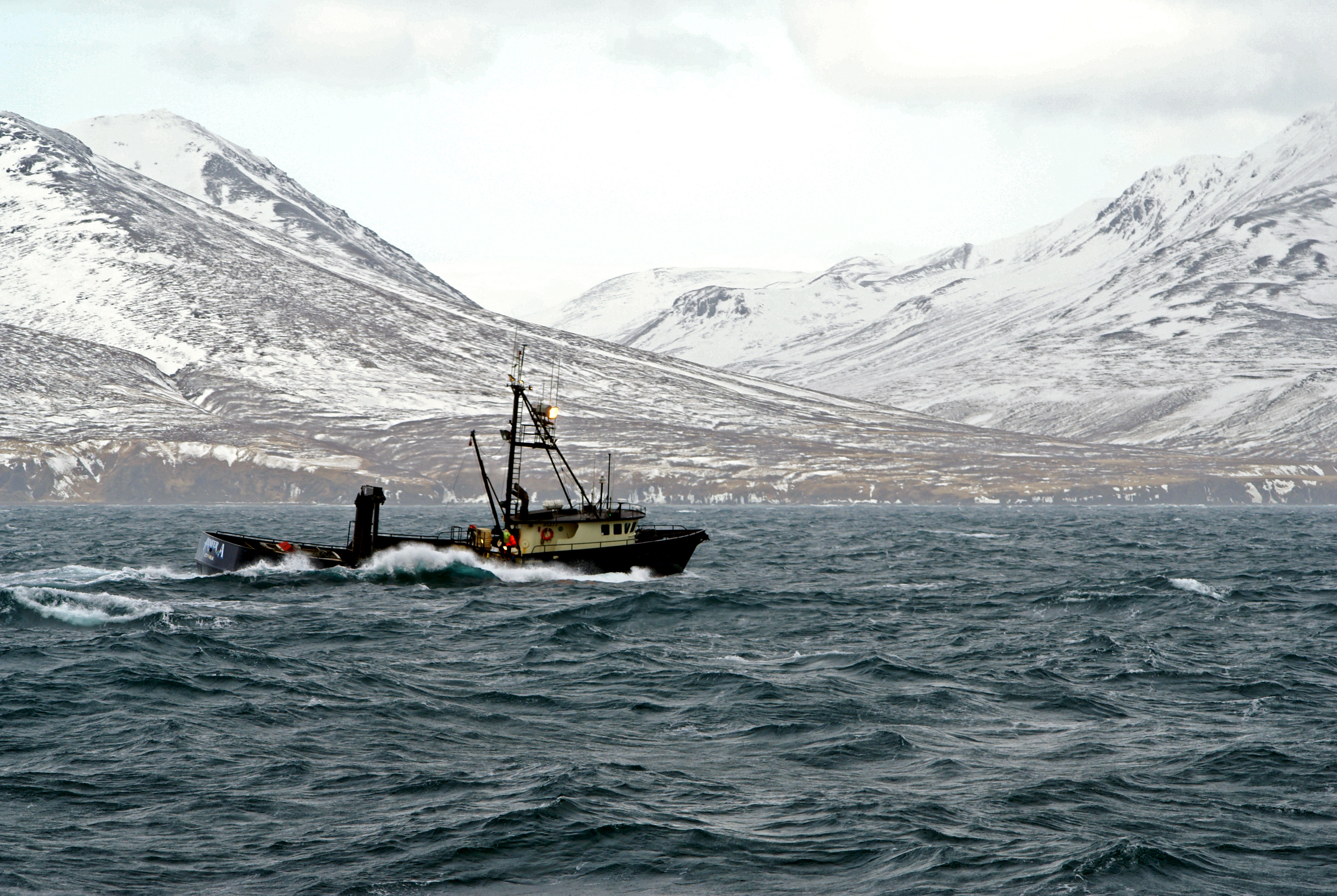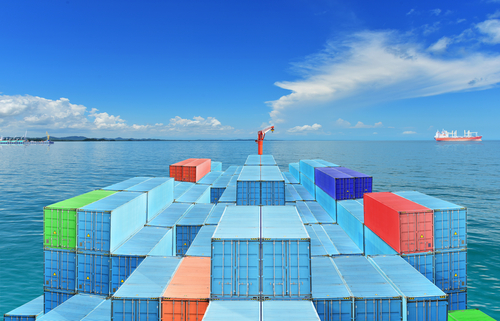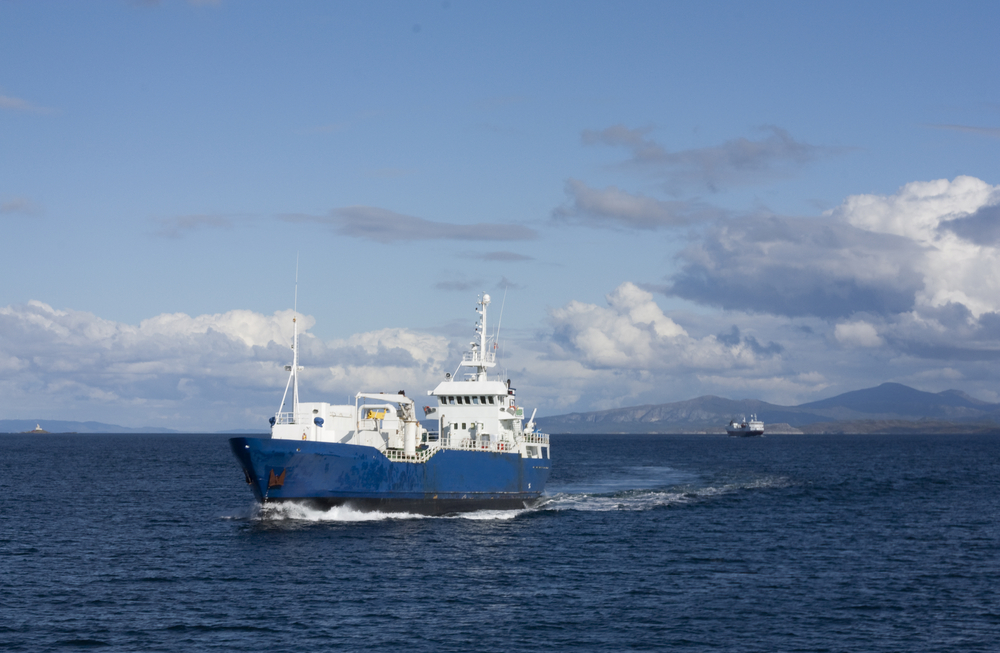All posts by NFI Media
Debunking AOL’s Pregnancy Myth
We read with interest an article featured on AOL (originally on Mic.com) titled: 5 myths about what pregnant women can and can’t eat, debunked.
The first myth debunked is that pregnant women can’t eat seafood. We were glad to see the author highlight the fact that when pregnant women avoid fish, it’s to the detriment of their children – who miss out on important health benefits.
But ironically, the recommendations that follow create more confusion for pregnant women, contradicting the official advice from the Food and Drug Administration (FDA).
The AOL article suggests pregnant women avoid: halibut, cod, tuna, sea bass, bluefish and grouper.
This list is demonstrably false. The FDA advises pregnant women to avoid just four fish: shark, tilefish, king mackerel, and swordfish. These four fish make up less than 1% of all the fish eaten by Americans annually. The FDA also specifically says pregnant women can eat all types of tuna – white (albacore) and light canned tuna. They can eat up to 6 ounces of white (albacore) tuna per week.
The bottom line is that pregnant women should eat 2 to 3 servings of a variety of seafood (including options like tuna or cod) per week to improve babies’ eye and brain development.
Unfortunately, the average pregnant woman currently eats less than 2 ounces of seafood per week, due to confusing and contradicting messages about seafood during pregnancy, like this one featured on AOL. The U.S. Dietary Guidelines for Americans are clear when they say, “the benefits of consuming seafood far outweigh the risks, even for pregnant women.”
Carl Safina exposed as Enviro Bully
CFOOD, a network of fisheries scientists, responded this week to an article in Medium titled, Environmental Bullies, how conservation ideologues attack scientists who don’t agree with them.
CFOOD summarizes the article well:
“Dr. Lutcavage felt [Carl] Safina and other NGOs like Pew Oceans have maligned her and her peers for their research because it would, ‘get in the way of fund-raising campaigns, messages to the media, book sales, rich donors, and perhaps the most insidious – attempts to influence US fisheries and ocean policies.'”
CFOOD contributor John Sibert of the University of Hawaii says that pressure for scientists to change or “spin” research results occurs more often than it should. He shares his most recent experience with pressure that came from a stringer who writes for Science magazine. The reporter’s approach was to play word games with Sibert’s replies in order to make it seem that Sibert’s research supported MPAs; it did not. Sibert repeatedly explained that the research showed that closing high-seas pockets had no effect whatsoever on the viability of tuna populations and that empirical evidence showed that the closure of the western high seas pockets in 2008 had in fact increased tuna catches.
Sibert summarizes with great advice:
“Instead of attacking the messenger and implying that Lutcavage and her colleagues are industry tools, Safina should have embraced the science, supported tuna conservation, and applied pressure in ICCAT to change its antiquated management. By attempting to smear Lutcavage and her NOAA colleagues, he demeans science in general and those of us who try to apply scientific approaches to resource management in particular.”
Canadian OpEd: Will fish be on the menu at upcoming State dinner?
An OpEd in The Hill Times, a Canadian paper covering politics, emphasizes efforts by the Canadian fishing community and government to eliminate Illegal, Unreported, and Unregulated (IUU) fishing globally – efforts that “are recognized as world-class.” The OpEd also highlights Canada’s impressive economic integrity record when it comes to labeling seafood. So why does the U.S. State Department appear to be accusing Canada, a trusted and reliable trading partner, of fishing illegally? Read the full OpEd here.
Tech Insider uses Cod as Clickbait
This isn’t the first time we’ve had to reach out to Business/Tech Insider about inaccuracies in a seafood story, and it’s not the first time they’ve given us no response. Don’t you just hate when facts and figures get in the way of good ole Clickbait? This time Tech Insider’s Clickbait actually stars a fish-favorite; cod.
Their recent report, stemming from comments Dwayne ‘The Rock’ Johnson made about his diet, does a huge disservice to readers by telling an incomplete story about cod.
Minimal research would reveal to the authors that there are multiple species of cod – Pacific cod, Atlantic cod, and Lingcod, as described on NOAA’s website, FishWatch.gov. However, Tech Insider chose to only tell the story of one of the species, Atlantic cod, because it has more challenges than the other fisheries. Because that makes a better story for them. Unfortunately, even their reporting on just this one species contains inaccuracies that fly-in-the-face of the independent fisheries assessments.
- Tech Insider doesn’t mention Pacific cod a single time, yet NOAA says commercial harvest of Pacific cod totals more than 700 million pounds. In fact, Pacific cod is the second largest commercial groundfish catch off Alaska and virtually all of the United States. NOAA goes on to call U.S.-caught Pacific cod “a smart seafood choice because it is sustainably managed and responsibly harvested under U.S. regulations.” Adding, “The Bering Sea and Gulf of Alaska stocks are above target population levels” and the species is fished “at recommended levels.”
- Lingcod, a smaller harvest than Pacific cod, tells a similar story. Also found in the Pacific (most abundant near British Columbia and Washington), NOAA calls Lingcod “a smart seafood choice because it is sustainably managed and responsibly harvested under U.S. regulations” and notes that the population “is above target levels.”
- NOAA is very public about its efforts to rebuild the Atlantic cod fishery. FishWatch.gov says the fishery is below target population levels, and rebuilding plans are in place that allows limited harvest by U.S. fishermen. In fact, NOAA emphasizes that fishing levels and landings of Atlantic cod are reduced, multiple times in its profile:
- Fishing levels are “reduced to end overfishing.”
- “The 2013 commercial landings of Atlantic cod totaled 5 million pounds and were valued at almost $10.5 million. Landings and values have decreased significantly over the past 2 years.”
- “Recreational anglers cannot keep cod caught in the Gulf of Maine.”
- “Both stocks are subject to overfishing. Fishing is still allowed, but at reduced levels.”
It’s confusing that Tech Insider claims, “So while the Gulf of Maine is warming and becoming increasingly inhospitable to cod, they are still being fished at the same rate.” While the very regulator who determines the fishing rate of Atlantic cod says that fishing levels are not at the same rate and that they’ve been reduced to address the issue. What does Tech Insider know that NOAA Fisheries, with a budget of $880 million, doesn’t? We’d be curious to find out.
Ending the article by recommending “domestically farmed tilapia” as an option for ‘The Rock’ reveals an ignorance about fisheries. Again, minimal research would inform Tech Insider that the farmed tilapia Americans order at a restaurant or buy in a grocery store is by-and-large farmed overseas, in countries that have the infrastructure for large-scale fish-farming that the U.S. simply doesn’t have. In fact, U.S. domestically farmed tilapia contributes 0.17% to global farmed tilapia production. Less than 1% of the commercial tilapia consumers can purchase in the U.S. is farmed in the U.S.
Suggesting that Americans stay away from cod without portraying the whole story of the cod market – like the large and sustainable Pacific cod fishery – is irresponsible. Science shows low seafood consumption is the second-biggest dietary contributor to preventable deaths in the U.S., taking 84,000 lives each year. Americans should be eating more, not less.
Clickbait about the latest laptop is one thing, but Clickbait that has the potential to negatively impact public health is reckless.
Greenpeace The Remora Of Global Seafood
If you read the seafood trades today you might have noticed coverage leading up to this week’s SeaWeb Seafood Summit. Undercurrent News talked to migrant rights’ activist Andy Hall who, “praised Thai Union Group for its ongoing efforts to clean up its supply chain.”
Thai Union and the Migrant Workers Rights Network were lauded for their extensive efforts to address labor challenges, noting the company “really has a lot to be proud of”.
Then, in an all too common illustration of how it’s always a day late and a dollar short, Greenpeace announced its plans to step up attacks against Thai Union.
What?
So, the company has evolved into a leader in addressing labor issues and while that effort is being extolled by groups that are actually working on the issue, Greenpeace is revving up to attack them.
Got it.
Greenpeace donors must be thrilled. They’re shoveling money into the organization so it can address issues other NGO’s have already addressed but just do it later with no demonstrable results of their own.
Greenpeace continues be the remora of the NGO seafood sustainability world, swimming alongside more respected NGO’s living off the scraps.
You don’t have to have a crystal ball to know what happens next. Greenpeace will attack Thai Union and then go hat-in-hand to its donors begging for more money to bring down big bad industry. Then, some months later, Greenpeace will blast out another email to its donors taking credit for changes the company already made, without regard to any of Greenpeace’s actions. Greenpeace’s act is getting so old it’s a wonder anyone still buys it.
Exploiting Labor Challenges for Profit
Labor and labor violations are serious business and should be addressed by those who are serious and have an agenda that is serious. Agitators who seek to profit from the difficulties posed by labor challenges should not simply be ignored but exposed and derided for their parasitic behavior.
Once again we see Greenpeace entering this realm, a realm it is quite comfortable in, as for decades now it has been a non-serious entity accustomed to glomming on to any issue it thinks will help it raise funds to pad its $300,000,000 a year operating budget.
Labor is the latest venue in which we see Greenpeace shaking its donation cup while pedaling rhetoric and hyperbole rather than solutions. The seafood community is working to change supply chain procedures, audit processes and push for effective in-country enforcement while Greenpeace, not involved in any labor related work, is doing what it does best; complain loudly.
Beyond just complaining, Greenpeace is unconscionably promoting false rhetoric. The group claimed Thai Union knew about labor violations in its value chain when it publicly chastised the company. Thai Union has taken swift and aggressive action on labor. Its entire shrimp feed supply chain will be fully audited by a third party in 2016. It has gone from dealing with 200 fish meal vessels to 50, from 20 fish meal factories to 5, (on the fishing side) from 2,000 boats to 800, and it’s announced it will bring all shrimp-processing in-house by the end of the year—all in the name of addressing labor concerns.
Greenpeace is not a serious player in discussions about seafood sustainability or labor but an opportunistic fundraising organization with no actual interest in addressing the challenge.
Shame on those who would abuse laborers and shame on those who would exploit the issue for their own profit.
Journalistic Failures of Newsweak
It’s embarrassing from a reporting perspective for Newsweek to allow the narrative and the voices in this seafood sustainability piece to go unchallenged, when governments across the globe are spearheading efforts to increase seafood consumption. To suggest seafood is not needed in the diet conflicts with the vast amount of independent, peer-reviewed science that continues to find eating seafood can help prevent and aid in the recovery of conditions from depression to heart-disease to osteoporosis. In fact, a Harvard study found that low seafood consumption in America is the second-biggest dietary contributor to preventable deaths, taking 84,000 lives a year. (For perspective, low intake of fruits and vegetables take 58,000 lives each year.) This article also leaves out important information about the robust sustainability efforts the seafood community is involved in, like the International Seafood Sustainability Foundation. Newsweek also might want to consider that in order to replace the protein harvested by commercial seafood, man would have to clear-cut all of the world’s rainforests 22 times over, according to renowned University of Washington fisheries scientist Professor Ray Hilborn. It’s simply not reasonable or responsible to suggest people stop eating fish.
Greenpeace bottomed out?
Greenpeace’s credibility has been plummeting for years. Stunts like damaging Peru’s ancient Nazca lines and holding dance parties on multi-million dollar yachts have exposed Greenpeace as an organization that is far from a serious stakeholder in the conservation community. In fact, its track record lead one of Greenpeace’s co-founders to lash out at the group this past summer explaining that, “science and logic no longer held sway. Sensationalism, misinformation and fear is what [Greenpeace] use[s] to promote… campaigns.”
And now, Greenpeace’s own peers in the NGO community are distancing themselves from the already marginalized group. Mark Berman of Earth Island Institute called out Greenpeace over its recent campaign targeting the tuna industry. Putting it bluntly, “I have a problem with Greenpeace. They’re doing the wrong thing.”
For years Greenpeace has refused to join responsible NGO’s working on tuna sustainability and instead has chosen to spend lavishly on plushy costumes and billboards that promote misinformation about the industry… spending no money on any actual tuna sustainability science.
We can’t imagine Mr. Berman is the only NGO director who feels this way about Greenpeace. The more Greenpeace acts like a petulant child and not like a reasonable adult, the more they’ll be treated that way.
Oh… and don’t think Greenpeace’s high dollar donors aren’t getting the message that high seas raves and completely ineffective call-in harassment campaigns are mothballed NGO tactics used by dinosaurs.
Greenpeace & the Irony of Advertising Its Own Failure
Promoting the next in its long line of colossal failures, Greenpeace targets American tuna companies by attacking them on billboards that are thinly disguised fundraising tools designed to fill their coffers rather than fix the challenges they claim exist. While reasonable, responsible environmental and ocean health organizations work hand-in-hand with tuna canners, who spend millions on sustainability efforts, Greenpeace harasses businesses with billboards, blimps and costumed protesters.
Not to put too fine a point on it but no one takes Greenpeace seriously in this country.
And why would anyone? Cartoon billboards, embarrassingly under attended days-of-action and rhetoric that consistently fails to match reality are all things that marginalize organizations. Greenpeace has been marginalizing itself for years and its latest stunts only serve to further isolate it from the adults doing the real sustainability work.
What Greenpeace fears most is having its ineffective shenanigans exposed, not to American consumers, who already don’t care, but to its institutional donors. They don’t want those big-dollar givers, who help Greenpeace bring in $700,000 A DAY in donations, to realize that stunts don’t equal sustainability work. Fancy yachts and funny videos are hardly the type of return on investment that most donors are looking for.
Perhaps next time it rents out a billboard, Greenpeace will simply write on it the dollar amount they’ve spent on tuna sustainability science. In fact… we dare you.

Newsweek Botches Advice to Parents
A recent article from Newsweek by Melania Juntti [11 Foods You Should Never Feed Your Kids] recklessly includes canned tuna among foods parents should not feed their children.
This is not only wrong, it’s counterproductive—even dangerous—advice for parents of growing children. If Newsweek advised mothers to forego the usual suspects in the food wars—sugary drinks or fatty snacks, say—kids may or may not benefit. But no harm would be done.
But when parents keep one of the most convenient, affordable, and nutritious sources of omega-3 fatty acids away from their children, they risk impairing their child’s cognitive development and their own cardiovascular health.
As the Food and Agriculture Organization of the UN notes: “Fish oils in fatty fish are the richest source of a type of fat that is vital to normal brain development in unborn babies and infants. Without adequate amounts of these fatty acids, normal brain development does not take place.”
Blake, a Clinical Associate Professor at Boston University, is right to list species like swordfish, king mackerel, and tilefish—which, along with shark, are the only four fish the FDA recommends pregnant and breastfeeding women and young children avoid. But she hurts public health by baselessly lumping canned albacore tuna into the same category. The reality is many young children, and especially pregnant women, aren’t eating nearly enough fish as it is. Needlessly scaring them will only exacerbate the problem.
Indeed, it’s exactly this kind of misguided and confusing advice that has prompted government regulators and nutrition experts to search for more accurate, intuitive, and effective ways of communicating the importance of seafood-rich diets to growing families. Instead of trying to scare women and their young families away from eating fish, Juntti should would better serve her readers by joining that effort.











